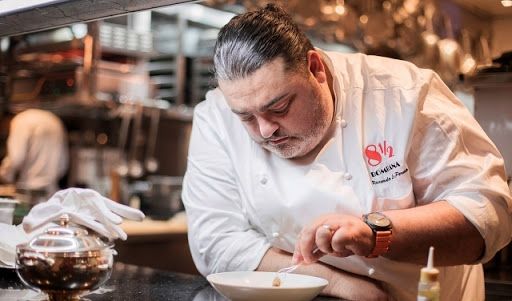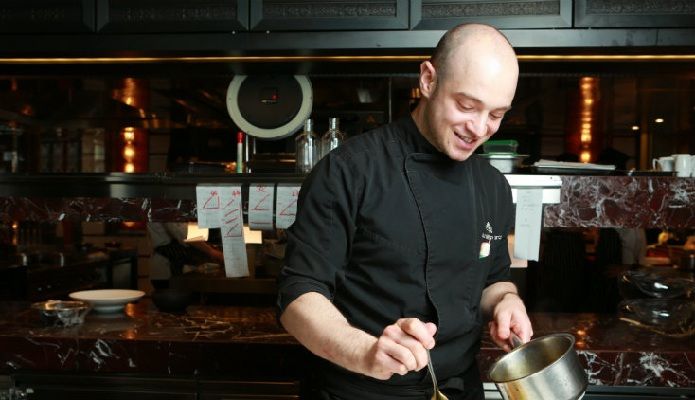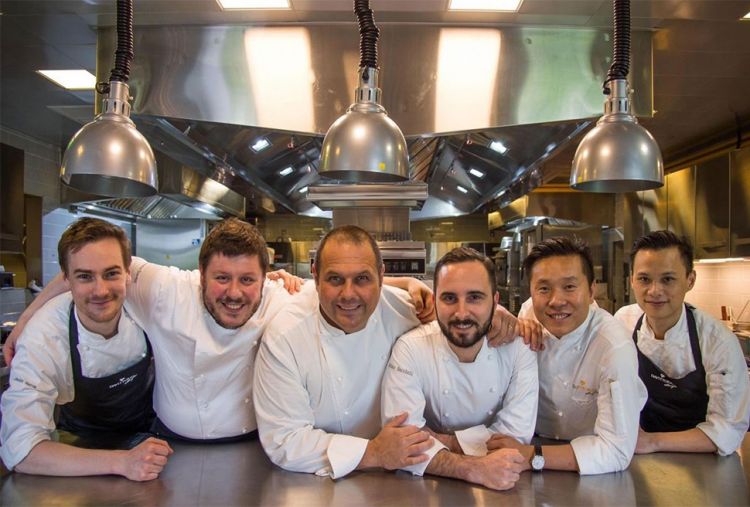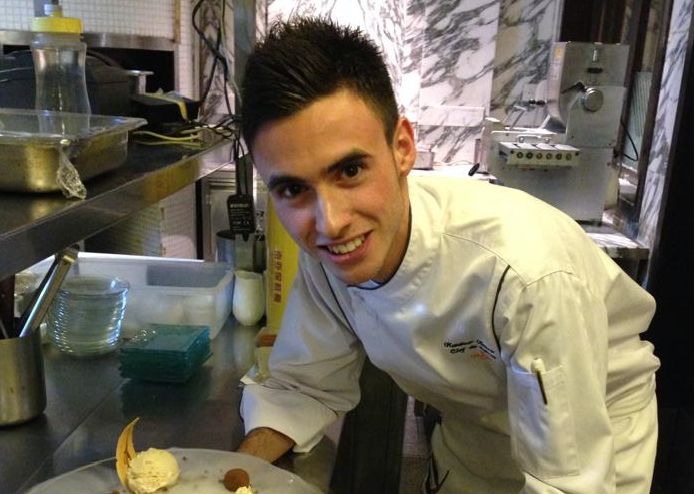There’s a pun that chefs here in China are saying. It sounds more or less like this: «It is so true that 2020 is the year of the Rat. Like rats, we’re all hidden behind walls; we go out only to look for food; we accumulate food at home to eat it later… and we run away when people get close». And someone also adds: «The year of the Cow, 2021, will arrive, and let’s hope it will come with its friends, the fat cows».
Indeed these over three months of coronavirus in China were a big problem for restaurants, like the 100 days of Napoleon. Only in Shanghai, top restaurants like Hakkasan in the prime location of Bund 18 closed, as well as Japanese Shinpaku in the very posh Three on the Bund (where there’s JeanGeorge).
Little down the same road, Ce La Vi inside elitist House of Roosevelt declared rien ne va plus; the well-established Va Bene, a top Italian restaurant in Xintiandi (owned by the powerful Gaia group that also owns Isola at Ifc and Gaia2 at Iapm mall) showed things were bad; many top hotels like Westin at Bund and Pudong’s Four Seasons, closed their doors, or entire hotel floors (like Skybar and Sky Restaurant at the Waldorf Astoria) and with them a mass of small and medium sized historic restaurants (Bohemia, Tandoor, Wolfgang Puck, El Luchador, Gemma, Shintori, Zizzi, Morton’s and many more…) which didn’t have stars or star chefs leading, but were part of the daily scene of movidaand soirées.
But some of the chefs who have been through the battle of the virus are now collecting some satisfying results. Stefano Bacchelli, executive chef at DaVittorio in fact recovered the pre-crisis business: «After the blow in February and partly in March [the restaurant reopened on the 10th February remaining closed for two weeks] we kept all our staff, guaranteeing quality, and re-establishing the entire menu (which during the crisis had been reduced because of the smaller number of guests, to make the service smoother and because it was hard to find the ingredients). We still have all our 6 ‘westerners’ at work in the team. The only difference is the mandatory use of the masks and the replacement of some ingredients that are now impossible to find, like scallops from Japan, fresh products from Australia and some pastas from Italy».

Riccardo La Perna, Otto e Mezzo Bombana, Shanghai

Nello Turco, Mio at Four Seasons in Beijing
The Tuscan chef thus counts his blessings: «If I think of how it began… to join my colleagues I had to take the only flight available: an Ethiopian Airlines via Addis Abeba with an 18-hour stopover! A journey of hope. Then they escorted me home, placed a camera in front of my door to monitor my movements, and Chinese doctors came to test my temperature each day for 14 days of quarantine. All this with commendable kindness. I must say they did an excellent job here».
Even for Riccardo La Perna, executive chef at Ottoemezzo Bombana it was like waking up after a bad dream. The restaurant reopened on March 2nd after closing for over 1 month: «In 15 years I had never been so long away from the kitchen. The city without cars, the forced closure of the restaurants. At times I thought I saw silhouettes like in a nightmare». The restaurant now not only is back at work, confirming the entire staff (including 6 westerners) but it’s doing more: «From May 1st we’ve decided to open at lunchtime too, to be even closer to clients. We will have an à la carte offer and a tasting menu for 588 rmb (around 76 euros) with 4 courses. We work with a 100% organic farm, which uses Italian seeds, and we follow the trend to eat less meat». So Ottoemezzo will be the only two-star restaurant in town open at lunchtime too.
In this dangerous casinobaccarat-stylegame for restaurants those who still appear to be suffering a little are restaurants inside hotels. «The problem with these outlets is that they are strongly connected with business travels and they are heavily guarded by the policies of the hotels in which they are located», “Pekinese” Samuele Rossi, general manager of stand-alone restaurant group Bella Vita (3 outposts in China) but with previous experience also with the Casino MGM group and with Hyatt Hotelsexplains. «In a famous restaurant in Beijing guests can only sit next to one another. Sitting facing each other is forbidden. Tables are at least 2 metres apart; weekend brunches and the very popular bubble free flows are forbidden because they are considered gatherings; police or health inspectors come to check every two or three days. They take pictures, and fine if necessary. Not to mention the process to change an ingredient… It’s like having to do with the ministry of Education». In other words, hotel restaurants suffer a much harsher stress.
Young chef Natalino Ambraknows this well. Previously at VaBene, he now sees his Scena, at the Ritz Carlton Hotel, closed for at least three months. «The hotel preferred to keep the roof top Cantonese restaurant open because it’s starred and because at this moment foreigners are locked out of the country [China totally blocked all entrances and visas to foreigners since March], but this period, though it’s a sacrifice, comes also useful because I can do many things that were not accessible before: I’m once again studying, I’m designing new menus, and with my team we do e-learning».

Team Da Vittorio, Shanghai

Natalinio Ambra, Scena, Shanghai (photo tvprato.it)
Aniello Turco knows something about it too. Recent new surprise in Beijing, with his Michelin star, he has had his Mio, at the Four Season, closed for weeks too. «The problem with travellers who live in hotels is that they don’t have the app of the Chinese government on their smartphone, which allows people to visit shops freely». It’s a tracking system that works with geolocalization and allows you to understand if a person comes from another town and, automatically, if this city follows different accommodation rules compared to the one where the tourist/businessman comes from. The code becomes automatically green, yellow or red. In the latter case the traveller can only order take away and is not allowed to enter any restaurant.
In other words, there’s a clear trend for those who work with locals. Those who work with foreigners will have some more hard time ahead. This is why another trend is becoming popular, which affects both the distribution chain and the staff management. «Here in China coronavirus led to two macro phenomena that have been active in Europe for a long time, but were still dormant here», says Nicola Coppi, Modenese owner of a factory producing premium Italian frozen food - pasta, pizza, gelato. Based in Shanghai, contrary to many businesses, it saw its turnover rocket: «On the one hand, many restaurants have contacted us, externalising their labour, reducing their management costs. On the other in China they are discovering a new consumption model, that has people dine at home on purpose, buying food online, and starting to appreciate frozen food».
That this situation may also depend on the fact that some people are sceptical of official data or don’t trust even their neighbour, at home or in the office, is not clear. We’ll find out in the next few weeks.
Translated into English by Slawka G. Scarso